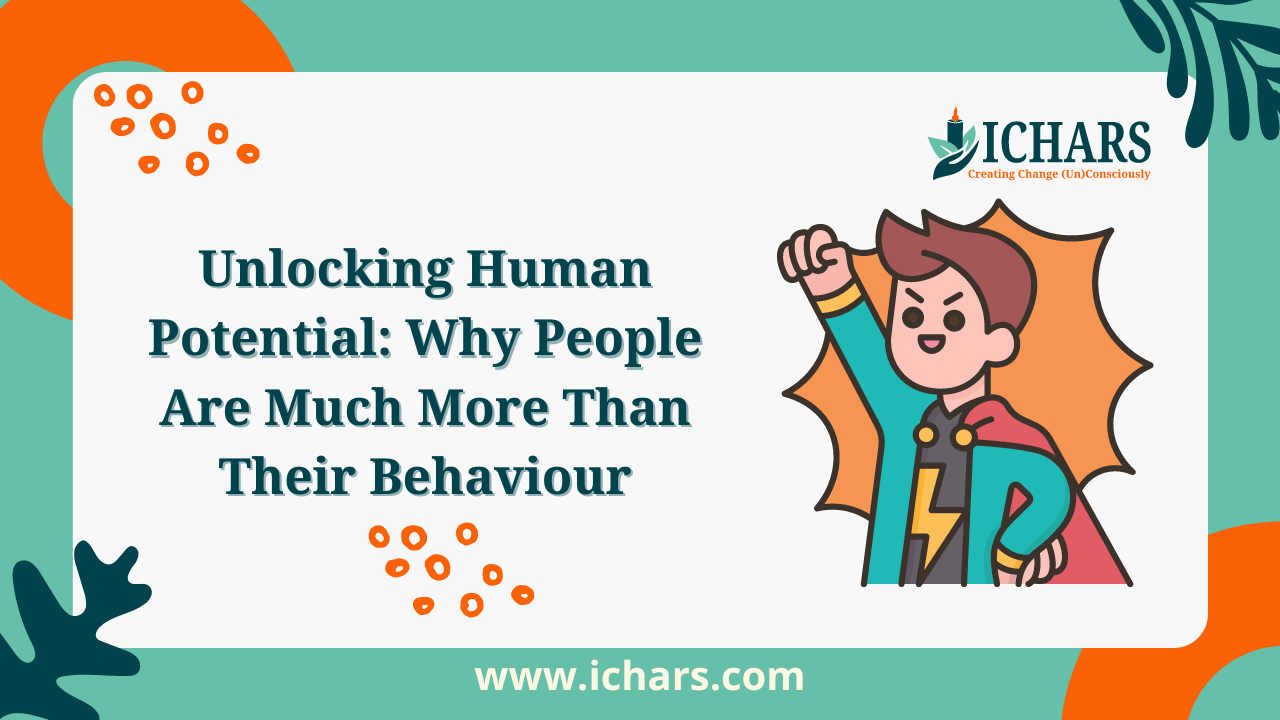Sarah was at her wits’ end with her teenage son Kyle’s defiant behaviour. The once sweet, obedient boy had become sullen, argumentative, and seemed to take pleasure in pushing her buttons. I don’t know who this kid is anymore, she lamented to her friend. The real Kyle I knew as a child is gone.
We’ve all been there – seeing someone act in a way that seems completely opposite of how we think they really are. However, the NLP presupposition of people are much more than their behaviour reminds us that there are always deeper contexts that shape a person’s actions.
Kyle’s behaviour, though frustrating, didn’t negate his inherent worth and potential as a human being.
What Does People Are Much More Than Their Behaviour Mean?
This NLP presupposition states that we cannot be defined or summed up solely by our observable behaviours, whether positive or negative. A person’s behaviours are like the tip of the iceberg – there is always a vastly more complex system of thoughts, beliefs, values, experiences, and circumstances underlying those behaviours.

As humans, we have essentially unlimited behavioural flexibility and potential based on our cognitive abilities. Our behaviours in any given moment are prompted by our perceptions, interpretations, emotional states, learnings, goals, and contexts. To say someone is their behaviour is to reduce their whole being to that surface-level expression.
The Psychological Basis
This presupposition, People are much more then their behaviours, aligns with core principles from humanistic psychology, such as the idea that humans have free will and an innate drive toward growth and fulfillment of their potential (Maslow, Rogers).
It’s also supported by modern theories that behaviour is shaped by the interaction between our biology, personal experiences, thoughts/beliefs, and environmental contexts (e.g. biopsychosocial model, CBT principles).
Our behaviours, whether considered good or bad, make perfect sense when examined through the lens of that individual’s unique psychological realities, life situations, and behavioural learnings over time.
Dismissing or defining someone based on their behaviours alone is an inaccurate and incomplete assessment of their identity and capabilities as a person.
Examples Across Life Domains
- A student who stops turning in assignments (behaviour) may be struggling with an undiagnosed learning disability, family stress, or other challenges affecting their motivation and performance.
- An employee who has a bad attitude and puts in low effort (behaviour) could actually be a talented worker who has become burned out and disengaged from lack of support or recognition.
- A spouse who has an affair (behaviour) may be craving intimacy and fulfillment that is lacking in the relationship dynamic, not necessarily being an innately untrustworthy person.
The examples could go on, but the key is realizing that people’s behaviours are like flashing warning lights – not confirmations of their total identity or potential as human beings.
Why It Matters for Psychologists and Coaches
Adopting the people are much more than their behaviour presupposition allows practitioners to look beyond clients’ presenting behaviours and approach them as whole, multi-faceted human beings.
It prevents labeling or prematurely defining someone based on a snapshot of behaviours that may be situation-specific, culturally-influenced, or based on flawed thoughts and learnings.
When we recognize that behaviours are separate from a person’s core self, it opens up opportunities for positive change, growth, and tapping into their unrealized potentials and capabilities. It also enhances the depth of understanding, empathy and rapport-building between practitioner and client.

Techniques from Cognitive Hypnotic Psychotherapy
Cognitive Hypnotic Psychotherapy (CHP) provides a powerful framework for helping clients embody the people are more than their behaviour principle:
- Exploration of the client’s self-perceptions, beliefs, and experiences underlying their behaviours through guided inquiry and hypnotic relaxation techniques.
- Reframing and expanding the client’s self-concept beyond their current, limiting behavioural expressions.
- Cognitive-behavioural strategies to disrupt unhelpful thought patterns and install new empowering beliefs about their identity and potential.
- Hypnotic suggestions to increase self-awareness, emotional self-regulation, and motivation to act in alignment with their highest values and desired self.
- Integrating insights from the client’s unconscious mind through hypnotic metaphors and stories to reveal their deeper motivations, strengths and wisdom.
The path to personal growth starts with recognizing that we are all far greater than any single behaviour. CHP gives practitioners powerful tools to help clients peel back the layers, reconnect with their core selves, and unleash their full human potential.
Conclusion
Ultimately, the presupposition that people are much more than their behaviour is a vital perspective for psychologists and coaches to embrace. It allows us to see clients as whole, multi-dimensional human beings with vast inner worlds and untapped positive potentials – not just clusters of presenting behaviours.

By separating the person from their actions, we open the doorway to profound personal growth, self-actualization and behavioural change from the inside-out. Cognitive Hypnotic Psychotherapy provides a comprehensive framework to guide clients through this transformative process of re-connecting with their core selves and consciously creating behaviours aligned with their highest values and grandest visions for their lives.

